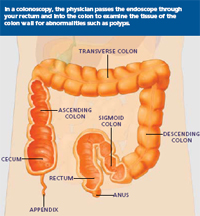Occasional Bloody Stool

Bloody mucus in the stool is commonly associated with inflammatory intestinal conditions like, Crohn's disease, and ulcerative colitis. If a patient is already in treatment for a bowel condition, bloody mucus in the stool should be noted and reported, but it is not usually a cause for immediate concern. Patients who have no history of intestinal problems and notice this symptom should contact a doctor for evaluation and treatment as soon as possible.
Bloating or fullness, Blood on stool surface, Bloody or red colored stools and Change in stools. WebMD Symptom Checker helps you find the most common medical conditions indicated by the symptoms bloating or fullness, blood on stool surface, bloody or red colored stools and change in stools including Dietary changes, Gastrointestinal bleeding, and Hemophilia. Blood in the stool typically means an individual is bleeding somewhere in their digestive system. The occurrence can be frightening and anxiety provoking.
Some mucus is usually present in the stool, albeit in trace amounts. Mucus is produced by the lining of the bowel as a lubricant to keep the bowels healthy and flexible, and sometimes the levels fluctuate in response to diet and other factors, like stress. Bloody mucus in the stool, however, is a cause for concern, as it indicates that there is a problem somewhere along the length of the intestines. The stool may also have a softened appearance and patients can experience bowel urgency and other symptoms as well.
When the bowel is inflamed, mucus production tends to increase, and ulcerations can develop, causing a leakage of blood into the stool. In addition, people can develop bloody mucus in the stool as a result of an infection, particularly if bacteria are involved, or because of an anal fissure, hemorrhoid, or bowel obstruction. Signs like abdominal bloating and tenderness or painful defecation can help narrow down the causes of bloody mucus in the stool.

In people who notice changes in bowel habits, including a change in the frequency of defecation or the appearance of the stool, bloody mucus is a cause for concern. It is advisable to call a doctor to see if a stool sample needs to be collected and to make an appointment for an examination. A doctor can evaluate the patient and determine what steps, if any, need to be taken for treatment. Antibiotics may be prescribed along with a bowel protectant to address the potential for infections and ulceration in the bowel.
Sporadic Bloody Stool
People with a history of bowel problems may periodically have this symptom, and it usually is indicative of a flareup somewhere along the intestines. If it persists, a doctor should be consulted to discuss changing the treatment plan. People with cancers of the intestines can also develop this symptom, particularly at the end of their lives as they focus on supportive care for comfort, rather than aggressive treatment.